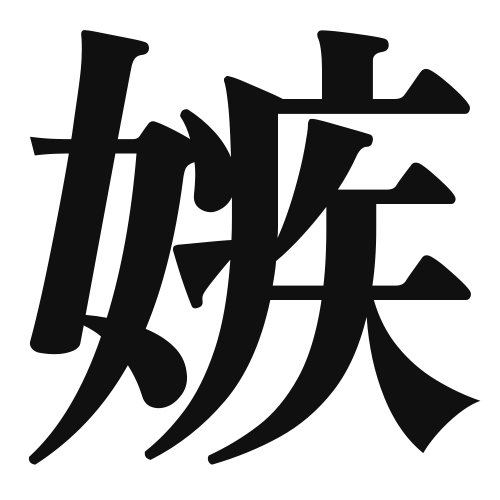1. Overview of Meaning
The kanji “嫉” (shitsu) means “jealousy” or “envy.” It represents the feeling of resentment towards someone else’s success or possessions.
2. Formation and Radical
Formation of the Kanji: The kanji “嫉” is a phonetic compound (形声文字), which combines the meaning of “woman” (女) and the phonetic element “七” (shichi), suggesting a connection to emotional states often associated with women in historical contexts.
Radical: The radical of “嫉” is “女” (woman), indicating that the kanji is related to emotions or feelings, particularly those expressed by women.
3. Examples of Usage
Common Words and Phrases:
- 嫉妬 (shitto) – jealousy
- 嫉妬心 (shittoshin) – feeling of jealousy
Example Sentences in Daily Conversation:
- 彼女は友達の成功に嫉妬している。 (Kanojo wa tomodachi no seikou ni shitto shite iru.) – She is jealous of her friend’s success.
- 嫉妬は人間関係を壊すことがある。 (Shitto wa ningen kankei o kowasu koto ga aru.) – Jealousy can sometimes ruin relationships.
4. Synonyms and Antonyms
Similar Kanji:
- 羨 (sen) – envy, which implies a desire for what someone else has, but without the negative connotation of jealousy.
Antonyms:
- 愛 (ai) – love, which represents a positive feeling towards others, contrasting with the negative feelings of jealousy.
5. Cultural and Historical Background
Relation to Japanese Culture: In Japanese culture, jealousy is often depicted in literature and art, reflecting the complexities of human emotions and relationships.
Proverbs and Idioms:
- 嫉妬は心を病む (Shitto wa kokoro o yamu) – “Jealousy can harm the heart,” emphasizing the negative impact of jealousy on one’s well-being.
